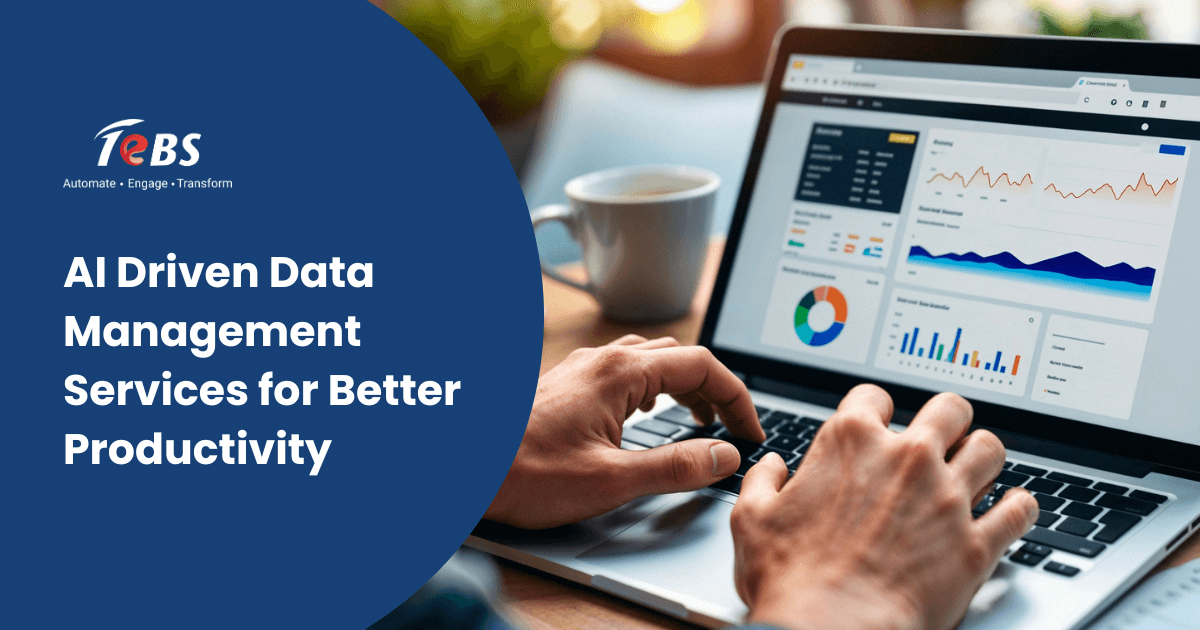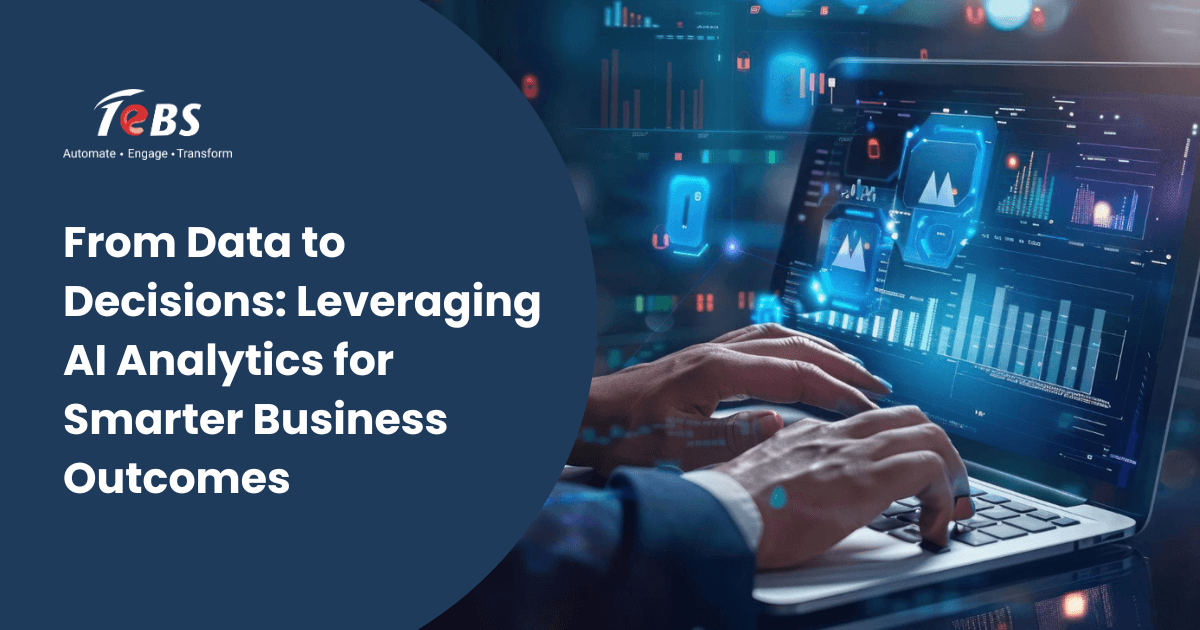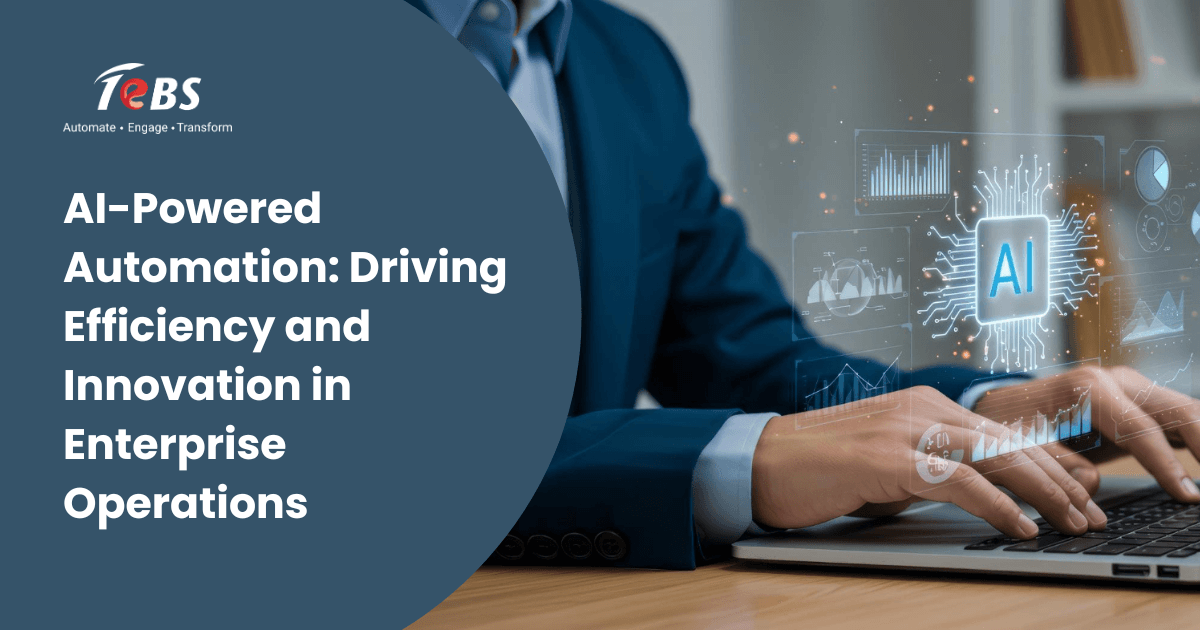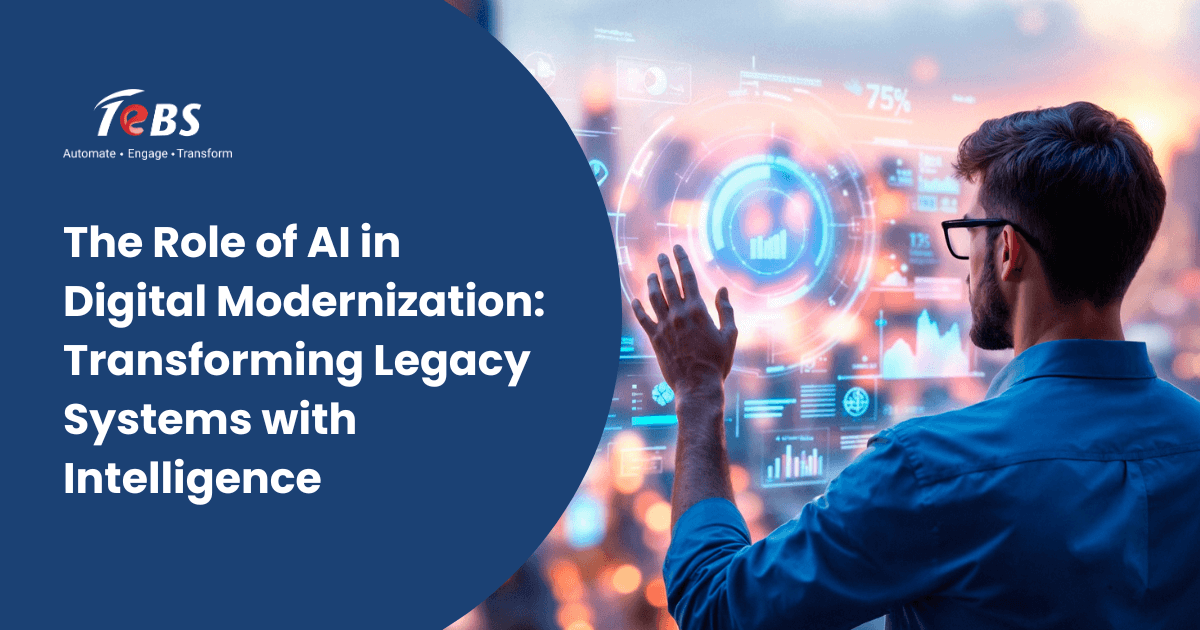Introduction to AI-Driven Services
The ability to manage data efficiently has become essential for achieving business success. As data volumes increase across industries, traditional data management approaches are no longer sufficient to handle the complexity, speed, and variety of information generated daily. This is where AI-driven services are transforming the way organizations manage and utilize data.
AI-driven data management services go beyond basic automation. They combine machine learning, natural language processing, and predictive analytics to intelligently collect, organize, classify, analyze, and retrieve data. These services are designed to remove the burden of manual processing, eliminate errors, and accelerate workflows. With AI embedded in data management, businesses can achieve higher levels of operational efficiency, enhance decision making, and ultimately improve productivity.
From cleansing and organizing large datasets to enabling intelligent search and retrieval, AI-driven solutions provide real-time capabilities that support faster business outcomes. The growing adoption of these tools marks a shift toward intelligent systems that can learn, adapt, and continuously improve data handling processes.
Examples of AI Services for Data Management
Several categories of AI-driven services are currently shaping modern data management strategies. These services can be tailored to meet the specific needs of different business functions, industries, and operational requirements.
AI-Based Data Integration
AI Automation enhances data integration by automatically mapping and merging data from multiple sources, identifying relationships between datasets, and correcting inconsistencies. These tools can recognize data patterns and apply logic to align formats, improve consistency, and create a unified data view across platforms.Smart Data Classification
AI-powered classification tools utilize natural language processing to comprehend and categorize data based on context and meaning. This allows businesses to tag documents, emails, forms, and records accurately without manual input. These tools also ensure compliance by identifying and flagging sensitive or confidential information.Data Cleansing and Enrichment
AI algorithms can detect anomalies, duplicates, and missing values in datasets. They automatically clean and enrich data using external references or historical patterns. This improves the quality and reliability of data used in downstream applications such as analytics, reporting, or forecasting.AI Powered Search and Retrieval
Search engines powered by AI allow employees to retrieve data and documents using natural language queries. These intelligent search tools understand intent, relevance, and context, delivering faster and more accurate results than traditional search systems.Predictive Data Analytics
AI tools analyze historical data to identify trends and predict future outcomes. These insights help organizations make informed decisions, optimize operations, and proactively manage risks. Predictive analytics also plays a key role in improving demand forecasting, resource allocation, and customer service strategies.Automated Workflow Routing
By using AI, organizations can automatically route documents and tasks based on predefined logic and contextual data. This reduces delays, streamlines approvals, and ensures consistent processing of data-intensive tasks across teams. To see how AI-driven data management enabled enterprise-wide automation and improved decision-making, explore this AI-powered digital transformation case study.Productivity Benefits of AI-Driven Tools
Adopting AI-driven data management services offers measurable productivity improvements. These benefits go beyond time savings and extend to cost efficiency, risk reduction, and workforce empowerment.1. Reduced Manual Effort
AI tools eliminate repetitive tasks such as data entry, tagging, and document routing. Employees are freed from time-consuming activities and can focus on more strategic initiatives. This shift from manual to intelligent processing increases the overall productivity of teams.2. Faster Decision Making
With real-time insights and predictive capabilities, decision makers can respond quickly to market changes, customer needs, and internal challenges. AI ensures that accurate, up-to-date data is always available to support business critical decisions.3. Improved Accuracy and Compliance
AI minimizes human errors by consistently applying logic to data processing. This results in cleaner, more accurate data and supports regulatory compliance. Features such as automated audits, data lineage, and access control help ensure that data policies are followed across the organization.4. Scalability Across Departments
AI-driven data management tools can scale across multiple departments without adding complexity. Whether it is finance, HR, marketing, or customer service, these solutions can be customized to meet departmental needs while maintaining enterprise-wide data integrity.5. Enhanced Collaboration and Accessibility
Intelligent data systems centralize and standardize information, making it easier for teams to collaborate across locations and functions. Cloud-based AI platforms also ensure secure and consistent access to data from any device, enhancing the agility of a modern workforce. Explore our guide on the power of AI automation for document digitization to see how intelligent tools can streamline your workflows.Future Scope of AI-Driven Services
As technology evolves, AI-driven data management services will continue to expand in capabilities and value. Several trends indicate a strong future for these intelligent systems.1.Context Aware Data Systems
AI services will become more context aware, allowing them to understand the business environment and user intent better. This will lead to more accurate recommendations, dynamic workflows, and adaptive data governance.2. Integration with Edge and IoT
With the rise of IoT and edge computing, AI-driven data management will play a crucial role in handling data generated from remote devices and sensors. This will support faster decisions in manufacturing, logistics, and healthcare environments.3. Voice Enabled Data Interaction
Voice interfaces will enable users to interact with data systems using natural speech. This will improve accessibility and allow hands-free access to important data insights, especially in field operations or healthcare settings.4. Self Learning Systems
AI tools will become more autonomous, learning continuously from user behavior and feedback. These self learning systems will automatically improve data quality, optimize processing logic, and predict user needs more effectively over time.5. Greater Focus on Ethical and Transparent AI
As AI becomes central to data management, there will be a greater emphasis on ethical practices, transparency, and accountability. Organizations will adopt frameworks to ensure that AI decisions are fair, explainable, and aligned with compliance requirements.Conclusion
AI-driven data management services offer a powerful way for organizations to enhance productivity, streamline processes, and make informed decisions. By automating routine tasks, improving data quality, and delivering actionable insights, these tools enable teams to work smarter and faster. As businesses prepare for a data-intensive future, adopting AI-based solutions becomes not just a competitive advantage but a necessity for sustained success. To explore how your organization can benefit from AI-powered data management, reach out to [email protected] for a personalized consultation.Frequently asked questions ?
What types of AI services help manage data effectively?
Key AI services include data integration, smart classification, cleansing and enrichment, predictive analytics, intelligent search, and automated workflow routing. These services improve data quality, accessibility, and usability.
How does AI-based data integration work?
AI-based integration automatically maps, merges, and standardizes data from multiple sources. It detects patterns, aligns formats, and ensures consistency to create a unified and reliable data view across platforms.
What is predictive data analytics and why is it important?
Predictive analytics uses historical data to identify trends and forecast future outcomes. It is vital for proactive decision-making, demand forecasting, risk management, and resource optimization.
How can AI improve data accuracy and compliance?
AI minimizes human error through automated checks, cleansing, and anomaly detection. It also supports compliance by ensuring data lineage, automated audits, and secure access controls.
Can AI tools scale across multiple departments?
Yes, AI-driven tools can be customized for finance, HR, marketing, or customer service, while maintaining enterprise-wide consistency. This scalability allows organizations to use a single platform across diverse functions.
Why is ethical and transparent AI important for data management?
Ethical AI ensures fairness, explainability, and accountability in decision-making. Transparency builds trust, helps meet regulatory requirements, and ensures that AI-powered data management aligns with business values.





